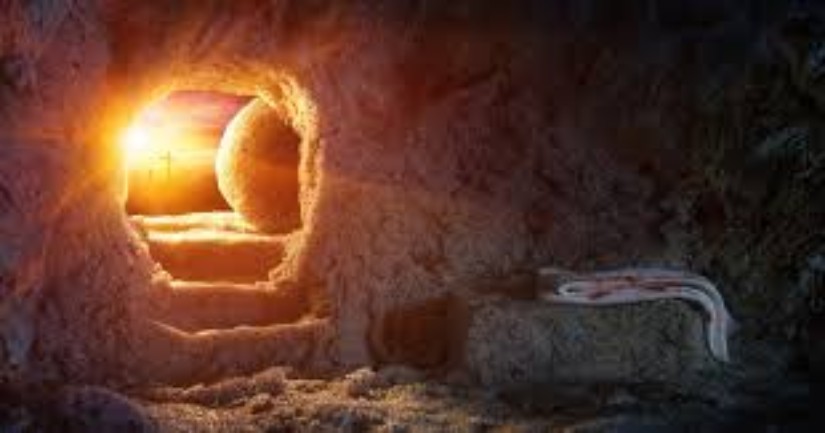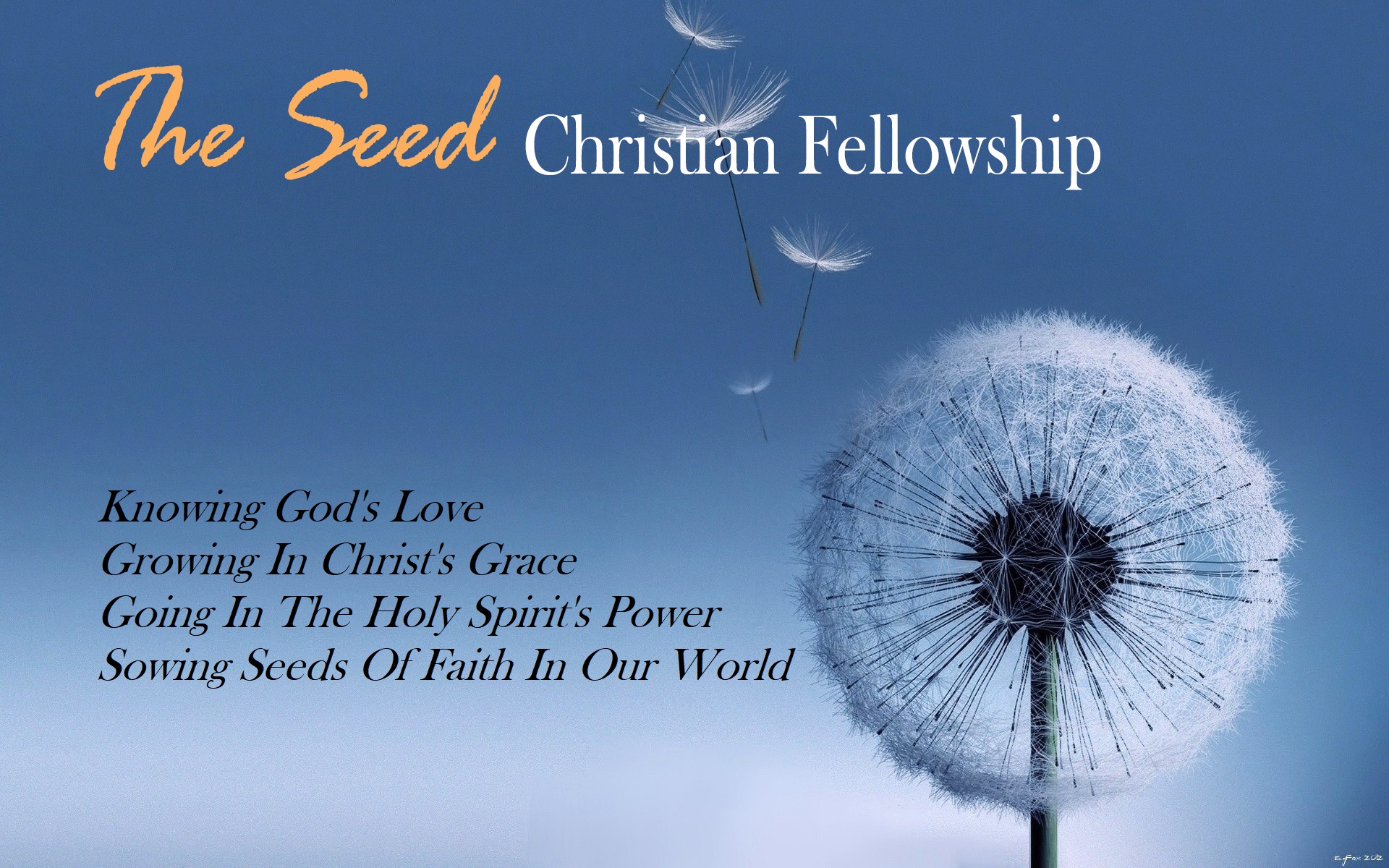Weekly Seed of Faith 11/15/21
Seed of Faith – RESURRECTION VICTORY By Pastor Dave

“Better is one day in your courts than a thousand elsewhere; I would rather be a doorkeeper in the house of my God than dwell in the tents of the wicked. For the LORD God is a sun and shield; the LORD bestows favor and honor; no good thing does he withhold from those whose walk is blameless.” Psalm 84:10-11
“For the perishable must clothe itself with the imperishable, and the mortal with immortality.” I Corinthians 15:53
Dear Faithful Friends, Family and Fruitful Seed-Sowers,
As I sit down to write a Seed of Faith, I realize it has been a long time since I’ve sat at my computer. My last Seed of Faith was written on October 2nd, 35 days ago. My last Seed of Faith was entitled, “Resurrection Revelations”. I had been writing a series on I Corinthians 15. I think this SEED OF FAITH will be a witness and a testimony to the love and grace of Jesus.
I encourage you to take a few minutes and read Paul’s writings in chapter 15 of 1 Corinthians.
By now, I am sure that you heard that our family came down with Covid-19 in the month of October. All seven of us in the house had Covid-19. The three grandchildren, our daughter and and son-of love and my wife and myself. We fell like dominoes–all 7 of us in 7 days. What is fascinating to me is that we all had different symptoms. My daughter and myself had it the worst. But, the truth be told, Covid hit the adults all pretty hard, we were in bed for a week! And the 3 teenagers recovered in days.
I want to thank all of you who loved us through this time. We received text messages, emails, cards, phone calls, food, food and more food. I also want to thank our doctors who got us the right treatments and medications. My wife and I both qualified for the monoclonal infusion; that certainly helped. Without your love, support, prayers and encouragement I do not know how we would have made it through. Thank you!
I have several devotionals that I read each morning along with my regular Bible reading. When I got knocked down with Covid-19, I did not do much but sleep and lay in bed for days. Jac tells everyone I slept 22 of the 24 hours a day for the first week.
Today I picked up my devotional, “Voices From The Past — Puritan Devotional Readings” edited by Richard Rushing and I noticed my book marker. I opened to the last day I had read: October 10th. The opening Scripture was the Psalm above, Psalm 84:10-11.
Today’s reading begins with Paul’s words found in 1 Corinthians 15:53.
On top of struggling through Covid-19–the entire house moaning and groaning–we received the sad news that “Dad” had contracted Covid in the memory care home. They have been battling Covid on and off for the past year. Dad had been isolated for the last half of September. Then we got Covid. Then Dad got Covid. With all of Dad’s medical conditions, he passed away on October 27th. The golden thread in all of this is that because we had had Covid, the nurse and the director allowed us to stay and visit dad once we hit our day 11. We were able to spend the last week of Dad’s life with him. That was a blessing–for him and for us. Hospice had isolated Dad and he was alone in his room for the first two days. I was then able to go and care for him, and a few days later Jac was able to join me. Dad was doing really well until the morning of Day 9. He really only suffered for a few minutes until Hospice gave him a dose of morphine–he was gone two hours later. Great peace filled his room those last two hours.
About 650 days ago, Jac’s mom fell and we found out she had stage IV lung cancer with metastases to her brain. We brought her home on hospice. Within 5 weeks, Mom passed to heaven. By now, we were noticing that Dad was not able to care for himself alone. Covid had hit America very strongly in early 2020, so we stayed 3 months and tried to figure out a plan. In mid-May we implemented our plan: rented a motorhome. packed up all Dad’s belongings that we could and moved dad from Florida to California. What a kind, gentle and loving man dad was. My wife said through her tears, the other day as we were cleaning up up his room, “Dad sure is miss-able.”
Boy, I thought about that statement! When I die, I want to be miss-able!
We know that Paul wanted to pass along to the church what was the most important thing he had — the resurrection. Listen again to the opening words of 1 Corinthians 15. “For what I received I passed on to you as of first importance: that Christ died for our sins according to the Scriptures, that he was buried, that he was raised on the third day according to the Scriptures, and that he appeared to Peter, and then to the Twelve.” I Corinthians 15:3-5
A good so what thought, or question is, “What is the most important thing you have? What is the most important thing you want to pass on to your children and your children’s children? What do you want your friends and family to remember about you?”
We all have questions about heaven and the resurrection. As I mentioned, my wife and I have been caring for Dad since her mom died in February of 2020. Dad lived with us for a year, and then his dementia got worse. We moved him into a memory care home. He loved it. He loved having his own room, little kitchenette, and private shower/bath. Every day he’d say, “I really love this place. It’s all I need.” Every day I would go and visit him—I used the excuse of bringing him the newspaper but it was really to check on him and to see how he was doing and if he needed anything. We’d go 2-3 times a day. The morning was to refresh his room, and the late afternoons were to play cards, and watch golf and baseball. During all of these visits, he has really become my dad; I call him dad. I’ve known him for 49 years now.
Almost every day as we would sit and talk, Dad would say, “I just cannot believe that Jo Ann (his wife of seventy years) is gone. I never thought this is how life would turn out. I always thought I’d go first.”
Every day I would talk with dad about the resurrection and heaven. I got to tell him heaven is a joyous place and that he will be given a new body. His old body that was dying and not working very well would be replaced with a new body that will never perish or get weak again. He said he liked that idea, “I hope you are right, David.” I would tell him about these passage in 1 Corinthians 15 and Revelation 21 that teaches about a new heaven and a new earth–where there will be no more tears, pain, or suffering. I would tell him that we are all going to die, but we will have life eternal given to us through Jesus Christ.
Friends, this is exactly what Paul is teaching the church in Corinth.
When dad passed away my wife, Jac and I were sitting by his bedside reading and praying with him. Right before he passed, Jac asked me to read the passage that we read to her mom when she passed. I got my Bible out and turned to 1 Corinthians 15 and starting reading at verse 53
“For the perishable must clothe itself with the imperishable, and the mortal with immortality. 54 When the perishable has been clothed with the imperishable, and the mortal with immortality, then the saying that is written will come true: “Death has been swallowed up in victory.” 55 Where, O death, is your victory? Where, O death, is your sting?” 56 The sting of death is sin, and the power of sin is the law. 57 But thanks be to God! He gives us the victory through our Lord Jesus Christ.” I Corinthians 15:53-57
When I started to read verse 57, dad took a deep breath and puffed up his chest and breathed out slowly and walked into the arms of Jesus. Dad was not afraid of death and he bravely faced it with his chest out as he embraced eternal life.
What is so fascinating to me is that when mom died almost two years ago dad sat with us as I read the same passages. He looked at Jac and I and said, “I have never seen anyone die before.” Over the past two years, dad has come to know the power, the hope and the resurrection victory.
So What?
Do you want the people who love you to say of you after you are gone, “Boy, are they ever miss-able” ?
When Jac walked into Dad’s room, Dad got the biggest smile on his face. He’d wave and say, “Hi, Jac! That’s my daughter!” Wherever he was, he’d tell everyone, “This is my daughter! She’s terrific!”
I’ve watched this relationship for 49 years now. I can’t recall a time when Dad wasn’t happy to see us. He’d stop whatever he was doing and see how we were. He’d offer a sodie, and food. Like Jac often says, “It was like we were movie stars or something!” Jac’s dad had a million dollar smile and a laugh to match.
Here’s your “SO WHAT?” homework: Do you believe it’s too late to change? It’s not. Do you want to be deeply missed when you move on to heaven? What do you need to change about yourself in order for that to happen? Jac’s dad would always say, “I don’t want to be any trouble. I want to be nice. I want to be kind.”
Dad, you are really miss-able around here.
See you Sunday!
God loves you and so do I,
Pastor Dave
www.theseedchristianfellowship.com
Copyright © 2018 THE SEED CHRISTIAN FELLOWSHIP, All rights reserved. May you be blessed by God’s grace and love. You are receiving this email because you signed up for our weekly devotionals. Our mailing address is: 6450 Emerald Street Alta Loma, California 91701 Want to change how you receive these emails? You can update your preferences or unsubscribe from this list.



